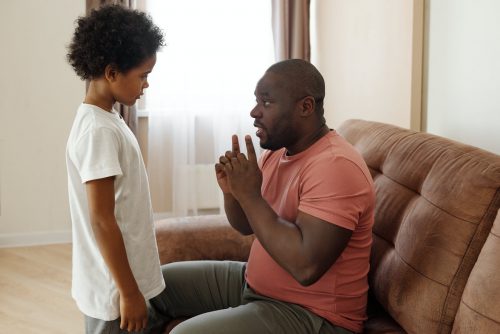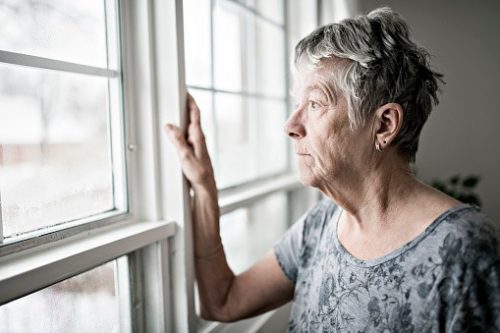The process of personal transformation that finally enables you to overcome an intellectual block, end a toxic relationship, adopt a new spiritual route, or discover a new passion is known as personal growth. Even though we’re still determining what to call it or exactly how to achieve it, it’s an objective that we all desire. Being completely aware of oneself and then taking action to modify desired behaviors, attitudes, beliefs, decisions, and habits is an aspect of personal growth.

True, the term “personal growth” has several definitions. It’s a confusing expression that’s simple to ignore. Because it is tricky to quantify, researchers and psychologists frequently hesitate to refer to it. However, this process begins with “self-awareness,” which enables one to view oneself objectively and ends with intentionally making changes to oneself that positively impact the person in the subjects of life. The goal of personal growth is to contribute positively and with assistance to your personal development.
That being said, personal growth is genuine despite being difficult to define because it varies from person to person. Occasionally, it involves picking up a new ability or worldview. For the people you love, often, all it takes is letting go of some of the uncertainties that prevent you from being more honest.
Sometimes, it takes finding the guts or self-assurance to take the leap and make a significant life change. You may take up a new pastime or take a more drastic step, like relocating elsewhere, ending your relationship with the person you love, or quitting your work.
Despite how dissimilar these outcomes may appear, they all share one element. A measurable shift in your way of living is almost always the outcome of personal progress, even though the process itself cannot be quantified.
Approaching it with skepticism is a good idea. Because of its enigmatic nature, it is frequently misused as a meaningless marketing cliché. It is possible for someone with no official qualifications or expertise to pose as a “personal growth coach” and charge several hundred dollars for very little services.
What Is Personal Growth And Development Made Up Of?
Self-knowledge is another element that unites all personal development journeys. When you begin to live your life in accordance with your true self, your desired self, and your potential self, you experience personal growth.
You will gain a deeper understanding of this phrase through treatment. One way to characterize personal growth would be the actions you take to make all aspects of your life better. This covers your hobbies, work, relationships, psychological well-being, and physical health. Acquiring and utilizing useful tools is necessary for personal growth. It also necessitates making adjustments and having the drive to get better.
The ongoing process of self-realization, self-improvement, and self-discovery is included in personal growth. It entails growing emotional intelligence, improving self-consciousness, and fostering a better knowledge of both oneself and other people. People can reach their full potential, develop their talents, and overcome obstacles through a lifetime of personal growth.
Depending on the requirements and preferences of the individual, making changes to oneself and evolving as a person can be an easy or difficult task. For many people, the quest for personal growth is a lifelong endeavor of self-improvement, but for others, it may be limited to one area of progress.
Personal development is frequently assisted or instructed by a coach. They might be a lecturer, personal trainer, medical professional, dietitian, mentor at work, close companion, parent, or any other person whose advice you respect enough to take action on. It may consist of numerous focal points with an equal number of related steps. Each person’s experience is different and could involve an extensive variety of different factors.
Treating mental health issues is just one aspect of psychological wellness; the other is personal growth. Personal development or growth can take various forms, including improvements in one’s psychological, social, physical, emotional, and spiritual well-being. Developing your consciousness and self-knowledge, acquiring new abilities, refining your viewpoint and behavior, highlighting your strengths, and fostering your unique traits are all components of personal growth in various areas. It should come as no surprise that the mental (including academic and professional) and emotional domains form the basis for all other domains.

The Benefits of Therapy for Personal Growth
In therapy, people can freely explore their ideas, feelings, and experiences in a safe and accepting environment. It has many positive effects on personal development, such as better coping mechanisms, better emotional control, self-awareness, and the emergence of healthy interpersonal patterns. In addition, therapy can help individuals overcome negative thought habits, become more resilient, and find purpose and fulfillment in their lives.
Focuses on Growth in Your Personal Life
It’s important that you understand what personal growth is, and it becomes even more significant when you put it into practice. Consulting with a personal growth counselor gives you the direction you need to take in order to make improvements. Personal growth counseling centers around helping you identify your life’s objectives and acquire the necessary skills to achieve them. Your therapist works with you to clarify this, identify the areas it applies to, and discuss the advantages of focusing on personal progress.
It’s crucial to have a point of view, and individuals will usually devote more time and energy to the things they are most focused on. You can concentrate on those fields you wish to improve in with the help of personal growth therapy. If you wish to advance personally, your priorities should be personal development and well-being. Counseling might help you develop your ability to focus.
Helps in Identifying Challenges
Recognizing the obstacles is a problem that you and many other people have when trying to progress personally. Anything that keeps you from progressing is an obstacle. Unfortunately, weaknesses are a part of obstacles, and many individuals like you find it unpleasant to consider their own. A counselor can support you in overcoming challenges. They will support you in overcoming any obstacles that stand in the way of your development and advancement.
For instance, do you get stressed? If you would like further information, you can seek professional help to diagnose your burnout symptoms properly. Although it’s a typical occurrence for people in their employment and other spheres of life, burnout can be problematic. A barrier to both work success and happiness might be exhaustion. Through personal growth therapy, you can address obstacles at work and receive guidance for dealing with the symptoms of fatigue or exhaustion.
Teaches You to Set Goals
You will only progress in life once you take on new challenges. You must, therefore, establish objectives and make plans to achieve them. Establishing objectives provides you with focus and something to aim toward. Goals are crucial for many additional reasons, including the ability to track your progress. You will learn the value of goal-setting from your counselor, who will also assist you in achieving your objectives. Setting modest, doable goals is a good place to start before moving on to bigger ones.
Encourages You to Find Peace and Fulfillment
Your perspectives, ideas, and feelings play a crucial role in your personal development. Do you feel depressed, anxious, or burned out, for instance? Have you ever felt inadequate or like a failure? Your life typically lacks completion, contentment, and tranquility when you experience these emotions. Personal growth therapy can be helpful if you suffer in this area. You can learn about your hobbies, passions, and aspirations through the process. You can then look for solutions to accomplish your objectives.
Recall that everyone’s definition of personal improvement is unique. Some desire to improve their mindsets, while others want to boost their careers or salaries. The excellent news is that you can develop in the areas that mean the most to you by working with a personal growth counselor.

Discover Ways to Use What You Learn
The ability to put what you’ve learned into practice is a crucial benefit of personal growth therapy. Through the process, you can acquire concepts, abilities, and tactics. You may stay committed to your issues, goals, and desires with the support of your counselor. They will also assist you in determining the best course of action to pursue to reach your desired growth.
Everyone can grow personally. However, you will need more time to anticipate it to happen; it requires practice. If you’re willing to put what you learn into practice, seeking counseling or therapy is the finest method to start improving the way you live your life.
Insight – Reap the Benefits of Personal Growth Through Counseling
It takes personal growth and development to achieve success, pleasure, and harmony in life. You have everything to gain and nothing to lose when you seek therapy. The treatment can help you grow in the most significant and meaningful areas since you have years of experience and knowledge.
Though less well-known than psychological therapy, personal growth therapy is incredibly beneficial for all those who want to develop to their full potential. You’ll learn what personal growth is and what it entails, which is the first advantage. The first step in implementing the necessary changes is realizing these things.
FAQs
How Does Counseling Contribute To Personal Growth And Development?
How does therapy help you grow?
Which approach to therapy focuses on personal growth?
Is therapy good for self-improvement?
How important personal growth and professional development?
Is counselling a profession that aims to promote personal growth and productivity?
Why counseling is important in improving the quality of life?
How does personal therapy help counsellors?
Why is self-development important in counselling skills practice?
Do humanistic therapists encourage people toward achieving self understanding and personal growth?
What skills and qualities do you feel you need to develop in counselling?
Why is personal development important in psychology?
Is therapy helpful for everyone?
Does therapy help with success?
Is therapy always useful?
How do you approach personal growth?
What is the personal growth theory?






























